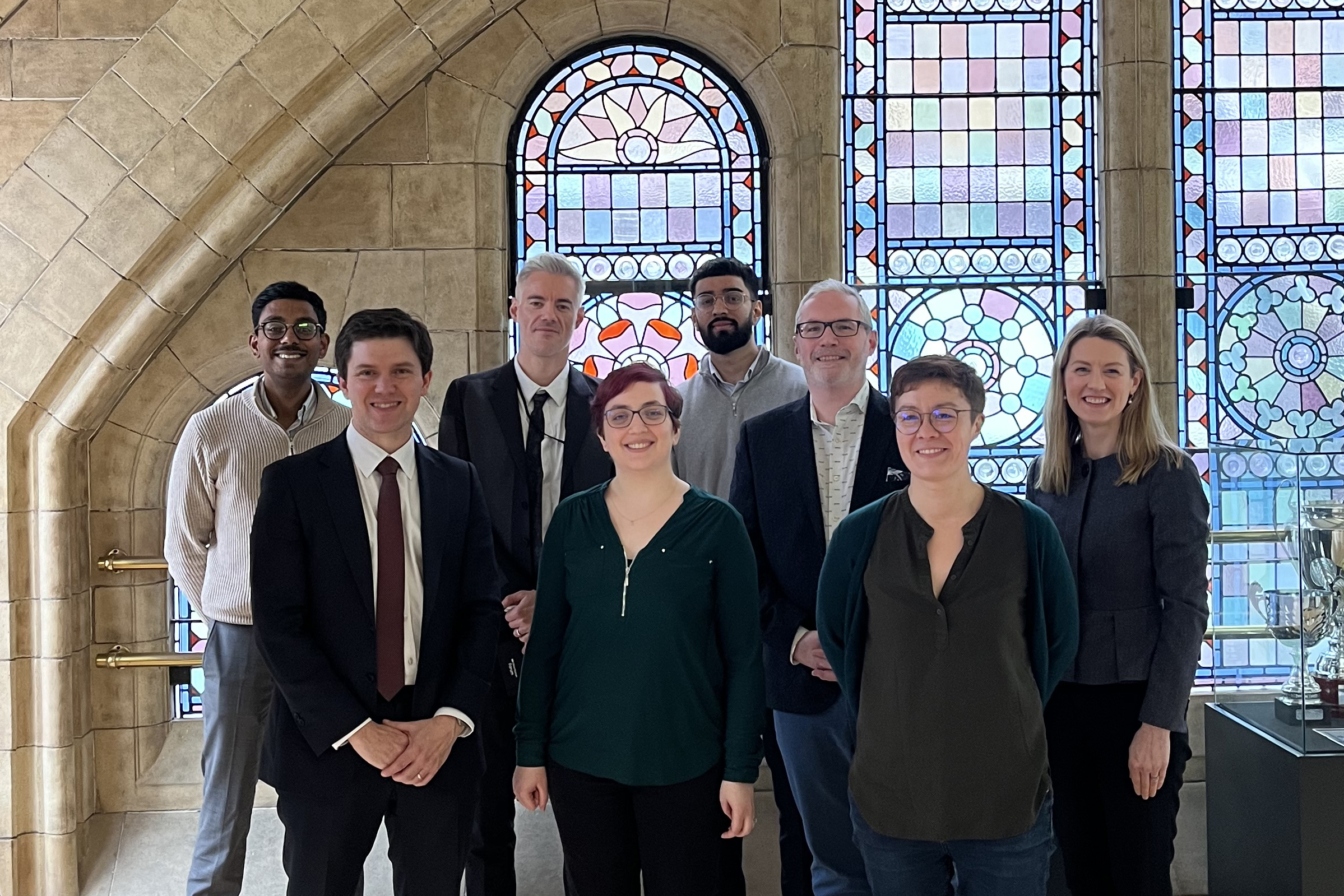The Natural History Museum (NHM) in London is a landmark in science research, and education, welcoming millions of visitors a year who want to learn more about our fascinating planet. The experts at this globally renowned museum look after more than 80 million objects spanning millions of years — ranging in size from the nation’s favorite dinosaur, Dippy the Diplodocus, and Hope the blue whale skeleton, to glittering mineral treasures and specimens collected by Charles Darwin himself.
The NHM’s ambition is to create a future where both planet and people thrive, and it hopes to achieve this through detailed academic research, collaborations with commercial and non-commercial organizations, and engagement at the NHM itself to create advocates for the planet.
Our latest engagement with the NHM, built on a long-standing collaboration with the Oliver Wyman Forum, focused on helping develop a strategy to bring a key resource for its mission — the Biodiversity Intactness Index (BII) — to the right business audiences.
Helping businesses on their journey to become more nature-positive is an important aspect of our efforts to safeguard the planet’s biodiversity. Oliver Wyman expertly guided the Natural History Museum towards the optimum approach for the Biodiversity Intactness Index in the short term, and how this might evolve in the long term. It was incredible how quickly the team was able to digest the complexity of the task at hand and produce meaningful insights, and we now have a fantastic strategy to executePete Ward, Head of Partnerships, Natural History Museum
The NHM BII summarizes the change in ecological communities in response to human pressures. It provides scientifically rigorous biodiversity data to support the implementation of net-positive biodiversity solutions. Using data on more than 60,000 plants, fungi, and animals from around the world, the BII demonstrates how local terrestrial biodiversity is responding to human pressures such as land use change and intensification. Unlike other biodiversity indicators, users can project how biodiversity will change in response to future management decisions.
Enabling the NHM to maximize the commercial potential of its BII dataset will help to drive its widespread adoption by key industries. The NHM is hopeful that this will help businesses to make decisions that help to protect the planet’s biodiversity. It will also drive critical resources to further support the museum's work in tackling the planetary emergency.
The NHM has already teamed up with Bloomberg to make BII insights available to financial markets for the first time, guiding institutions on how to make better nature-positive investment decisions.
The NHM needed guidance to further maximize the impact of the BII and help even more businesses shape their strategies around protecting and preserving Earth’s ecosystems and making nature-positive decisions. The work focused on identifying priority industries, clients, and use cases it should focus further sales efforts on, before defining its packaging and pricing. The NHM also needed an implementation roadmap to help direct how it can deliver on its new go-to-market strategy.

Collaborating with Oliver Wyman has enabled us to assess strategies for expediting our biodiversity project. This acceleration aims to bring about transformative effects on the environment and society while also contributing to funding essential research initiativesDr Gareth Thomas, Head of Research Innovation, Natural History Museum
Through consultation with the NHM, our team helped achieve several goals. The development of a packaging and pricing go-to-market strategy provided the NHM with a clear roadmap for short-term and long-term success. The deliverables, including commercial principles, prioritization framework, pricing model, and implementation plan, further provided the NHM with a holistic view of customer needs, pricing preferences, and willingness to pay.
The project had an immediate impact by equipping the NHM with the necessary tools and insights to commercialize its data product effectively and contribute to its mission of protecting biodiversity on Earth and tackling the planetary emergency.
This project was highly rewarding as it supported the NHM in accelerating its ambitions and, more importantly, allowed us to help support the wider biodiversity agenda. Getting the Biodiversity Intactness Index into the hands of more organizations is crucial in meeting our global biodiversity ambitions. I look forward to seeing how BII evolvesNitin Rai, Senior Consultant, Oliver Wyman


